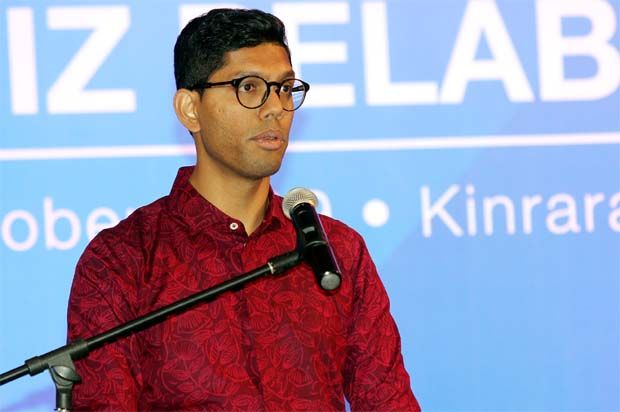
THE word transformation has become a buzzword, with companies throwing it about loosely.
Transformation happens when they reach that crossroad to navigate their business forward, amidst external factors like digitalisation and increased competition.
Typically, many of these companies are in the old economic sectors, have under-invested in people and are still managed in a very old-fashioned way.
Leadership
Every transformation must be led by the CEO. I’m not a fan of having Chief Transformation Officers, it passes the buck of responsibility to somebody else.
The best result of transformation happens when each function identifies what transformation effort is required, and their respective leaders own the initiative and run with it.
This also ensures that leaders are empowered, but accountable for their action.
The role of the CEO is to give support, guidance and remove bureaucracies within the organisation (which in itself is a transformation).
CEOs who are hired for transformation roles must be equipped with the ability to visualise the future, motivate their team and be brave to make unpopular but necessary decisions.
Boards often search for that transformative CEO, but then get cold feet and resort to somebody who does not rock the boat.
Communication
Getting the buy in from the organisation is vital. I subscribe to the why, what and how.
A CEO must understand that the word transformation can mean different things to many people. Middle- and lower-levels may feel threatened with impending digitalisation and how that could result in them losing their jobs.
CEOs must communicate clearly and regularly. Start with explaining why the transformation is being done. This is key to ensuring everybody is on the same path.
Then, explain what the transformation is about, what areas will be undergoing changes, what are the objectives and how success will be measured.
Finally explain how this transformation will affect them personally, and what is expected of them and how each of them can play a role. This is where assurances are given that grouses will be heard, people will be upskilled and everybody will be supported.
However make it clear that everybody will have to undo what they know.
Empowerment
In every transformation project I undertook, the quickest results came when we empowered the teams. They are the ones doing the daily tasks, know the pain points and often have a solution to rectify this.
Team leaders must assign leads on every issue so there is ownership all across. Transformation is about team effort, not for one individual to carry the load themselves.
Failures happen because the entire organisation is not on board, or because individuals don’t feel like they are playing a part.
Having a CEO who is strategic and does not micro manage, and knows when or when not to get involved is key here.
Incentives
We all work for the monetary rewards and are motivated when we are recognised. In transformation projects, incentives must be aligned to success.
In order for this to happen, we need to break down what is the objective of everything we do (generally a good practice all along to ask why are we doing this?), and what does success look like.
For example, if you are digitalising your organisation, what do you want it to look like, how do you want this to work – that is the measure of success.
Incentivise when this is achieved. This can also be the start of a more holistic performance review process, a departure from the archaic once-a-year sit down and chat reviews, which yield zero results.
Celebrate
As CEO, I always enjoyed writing to the firm about what’s happening, what we are doing and where we are winning and falling behind.
Honesty is key, so that people know which initiatives are not working. This will also motivate them to be honest with the CEO on what’s not going right.
Remember, the biggest impediment to transformation is culture. The single most difficult thing to change, but not impossible.
When something has been achieved, celebrate it, it motivates the team and the organisation.
Healthy competition is never a bad thing, it also puts in place a performance-driven culture.
Transformation journeys are long and painful. Rather than being stressed for three years, why not celebrate victories along the way. Share these wins externally, this makes employees proud to be associated with the firm.
Sustainability
I’m a believer that transformation initiatives should not have a timeline. It must be ingrained that change is constant and whatever initiatives that have been put in place must be consistently reviewed so that the organisation is on top of things.
In one project I did several years ago, we had moved from an old fashioned database to a system that was so advanced within the asset management industry. We had offers to sell this system to other firms, and that eventually created an additional revenue stream. All this was built in-house.
During this transformation journey, you will discover some brilliant talents in the organisation. Ownership was given, and they delivered. Nurture them, and keep it going.
Jalil Rasheed is the former chief executive officer of PNB. Views expressed here are his own.
The article was first published here.
Photo by Jehyun Sung on Unsplash

 5.0
5.0 





















